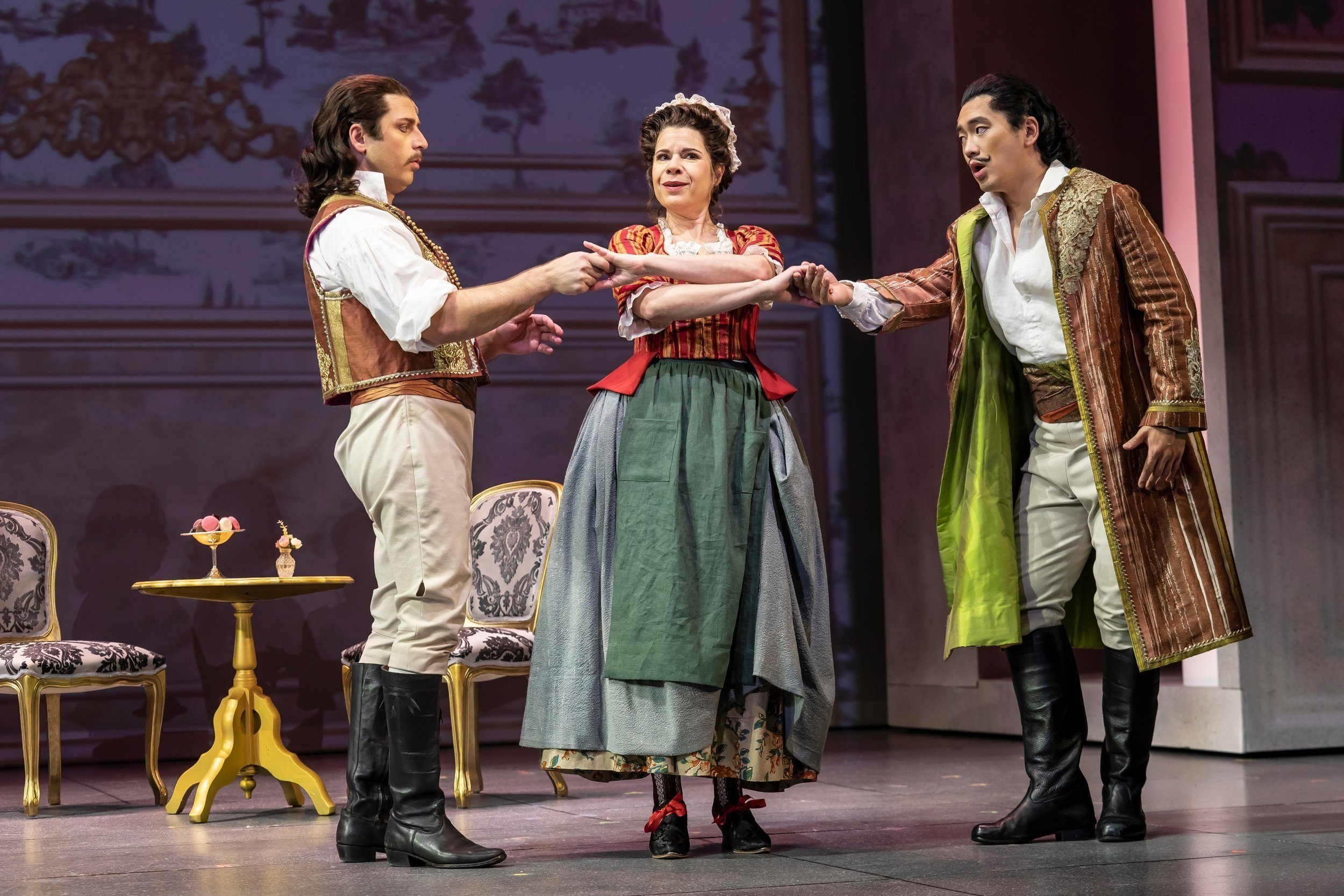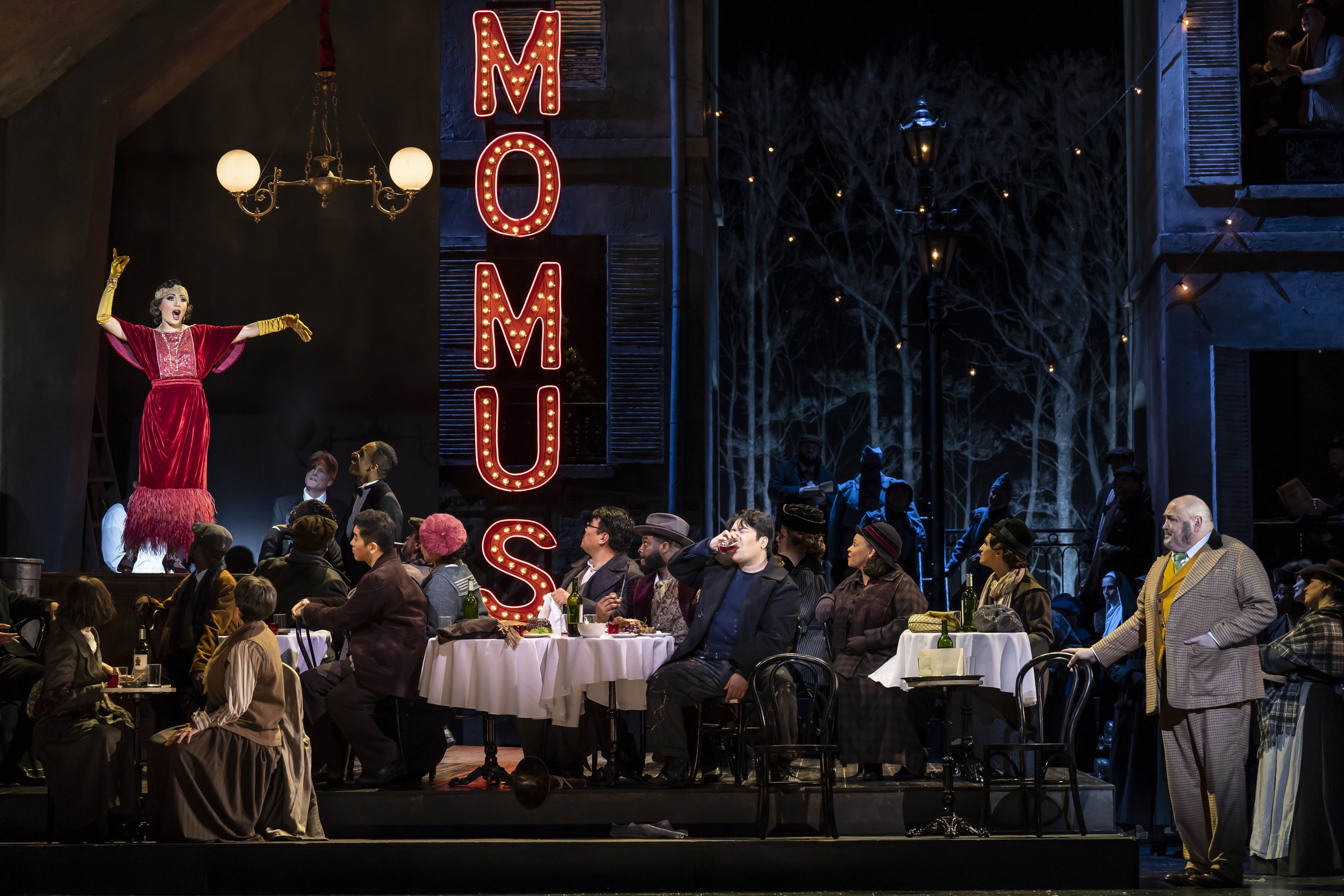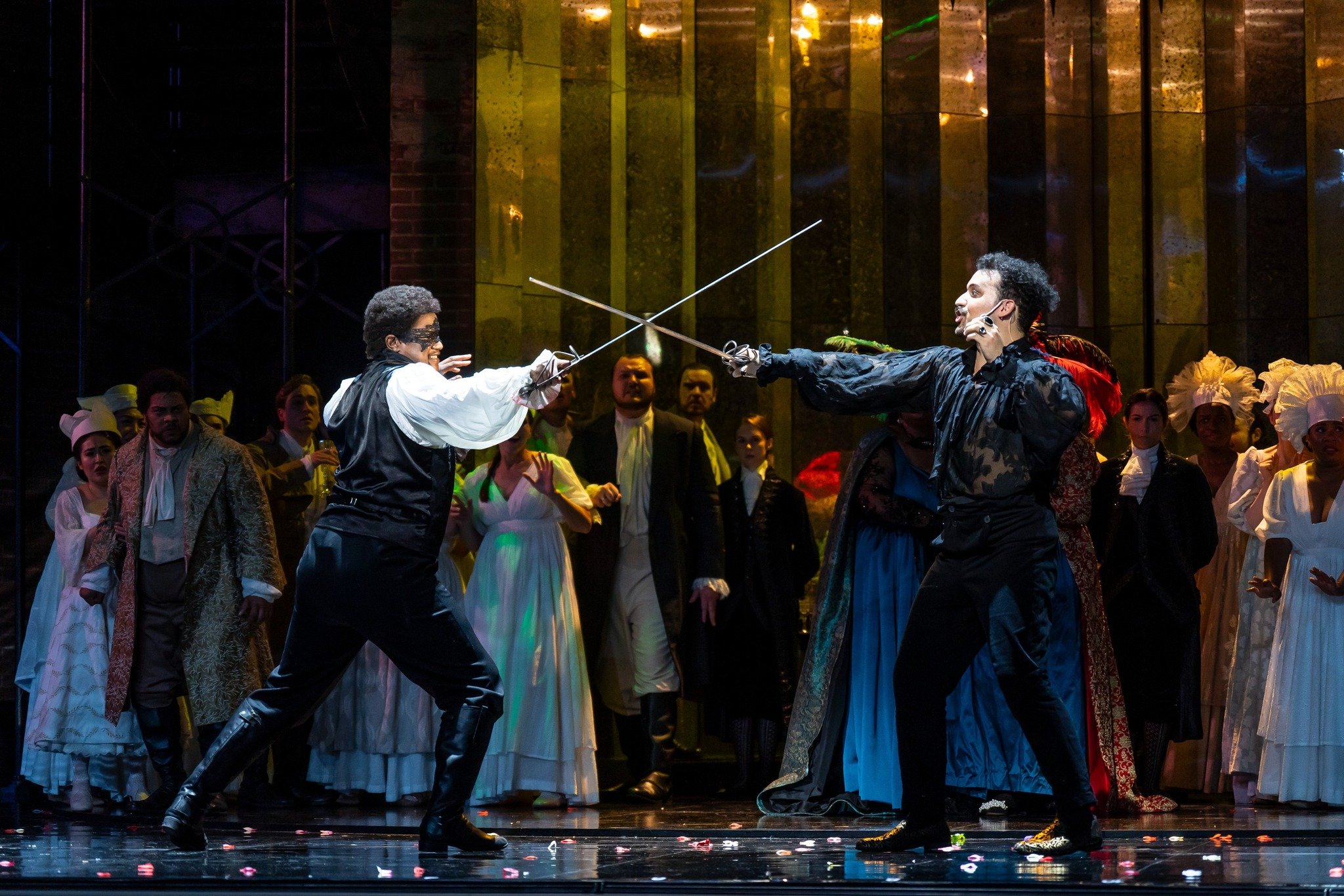Cosi fan tutte at WNO

There are many things to recommend Washington National Opera’s new production of Mozart’s late masterpiece, Così fan tutte; principally a young, appealing cast and crew (three of the six principals making their mainstage debuts with the company, along with director Alison Moritz and conductor Erina Yashima. These virtues mostly compensate for the factors working against its success, principally the venue. Since the Kennedy Center’s Opera House is booked with “Riverdance,” the WNO had to mount Così in the Eisenhower Theater; a hall whose dry acoustics were designed for speech rather than music, whose pit is too small for a decent-sized band, and whose noisy air-handling system ruins the quietest passages. The substantial orchestra was thus stuck at the back of the stage, behind a scrim, which required all the action to take place in a very shallow space. While we (sort of) heard the chorus, we never saw them, even during bows; just not enough room onstage for them? The set-up also required the conductor to interact with her cast only through video monitors which of course led to imprecisions throughout the evening.
But opera is, in the first instance, about singing and acting, and here there was very little to complain about. All of the fast ensembles were exemplary, well-drilled and sparkling, a credit to the singers and Yashima. Kang Wang (Ferrando) has a remarkably clear, ringing tenor, the largest voice in the cast. There’s still a bit of strain above a high G, but the color overall is glorious. I see a big future for him. Rihab Chaieb (Dorabella) looked and sounded like a fully finished artist, every corner of the voice nicely controlled and perfect-pitch acting. Ana María Martínez (Despina) was very fine vocally, but I’ve seen sharper, funnier characterization in that role. Andrey Zhilikhovsky (Gugliemo) also had a good instrument, if overshadowed by Wang’s, and his mugging was irritating. Ferruccio Furlanetto in the linchpin role of Don Alfonso, has trod the boards of leading opera houses since the late 1970’s, and appeared with virtually every major company and conductor since then. While vocally in his dotage now, he still has “presence,” and his comic timing was an ongoing lesson to his young colleagues. Laura Wilde (Fiordiligi) was a tad below the others, though she was handling the most taxing role. The voice changed color too much from low to high, and she sometimes sacrificed expression for breath-control. Per Pieta, the longest number in the show (and most prone to dragging), really needed more interaction with and input from Yashima, but the limitations of video communication hobbled things, and the tour de force came off a little flat.
Moritz coped with the limited space as best she could, though in this #MeToo world, she had the plot’s sexuality G-rated. Costume designer Lynly Saunders went a little overboard with Despina’s two disguises, but I appreciated that this was not an “updated” Così – costumes and accoutrements were all from the proper period. The show runs through this Saturday, and is well worth the ticket.
Pictured: [l-r] Andrey Zhilikhovsky (baritone), Ana Maria Martinez (soprano), Kang Wang (tenor) in Cosi fan tutte. Photo by Scott Suchman.





